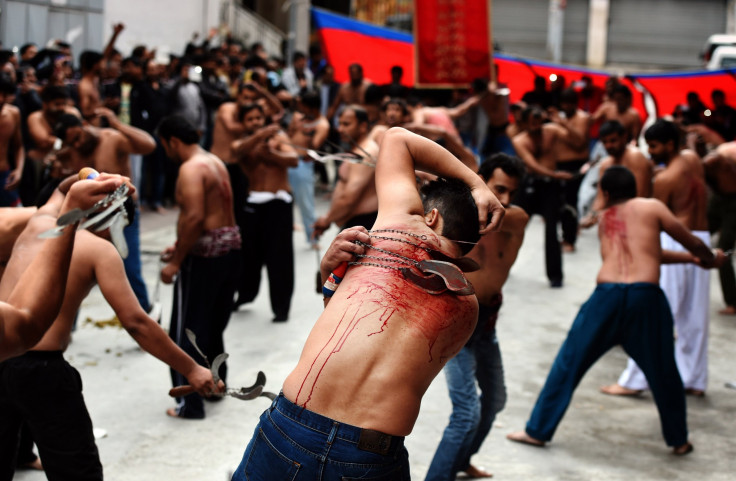When Is Ashura 2016? Dates, Key Facts, History, Plus Why Shiites Self-Flagellate On This Muslim Holy Day

On Tuesday, Muslims across the world will be marking Ashura, a prominent day for all Muslims but one which is also at the heart of the split between Sunni and Shiite Muslims. Here’s what you need to know.
When is Ashura? Ashura means “10” and occurs on the 10th day of Muharram, the first month of the Islamic calendar and the second holiest month after Ramadan. This year it falls on Oct. 11, although in some countries the day before Ashura is also a public holiday.
What is it? For Sunni Muslims, Ashura is a day of celebration to commemorate Moses being saved from the Egyptians by Allah. It is also the day when the Prophet Muhammad, then in Medina, noticed Jews fasting on their Day of Atonement, or Yom Kippur, and decided that he and his followers should do likewise. In addition, Ashura marks the day Noah left the Ark.
For Shiites, though, Ashura has extra significance and is very much a somber occasion. It was the day in 680 AD that Imam Hussein, a grandson of Muhammad, was murdered in Karbala, in modern-day Iraq, during a battle against the ruling Caliph. It is this event that brought about the splitting of Islam into two main sects – Sunni and Shiite.
Hussein opposed the nomination as caliph of Yazid I by his father and previous caliph Muawiyah following the death of Muawiyah I and refused to swear loyalty to him. This led to the Battle of Karbala and the death of Hussein, who Shiites consider a martyr.
How is it marked? The 10 days from the Islamic New Year up to and including the night of Ashura is a time for mourning for Shiite Muslims. On Ashura itself, there are public mourning rituals and plays that reenact the martyrdom of Hussein. Many Shiite Muslims parade through the streets dressed all in black, while some self-flagellate using chains with blades as a way of showing solidarity with the suffering suffered by Hussein.
For Sunnis, it is a day of fasting although this is voluntary rather than compulsory.
© Copyright IBTimes 2024. All rights reserved.





















